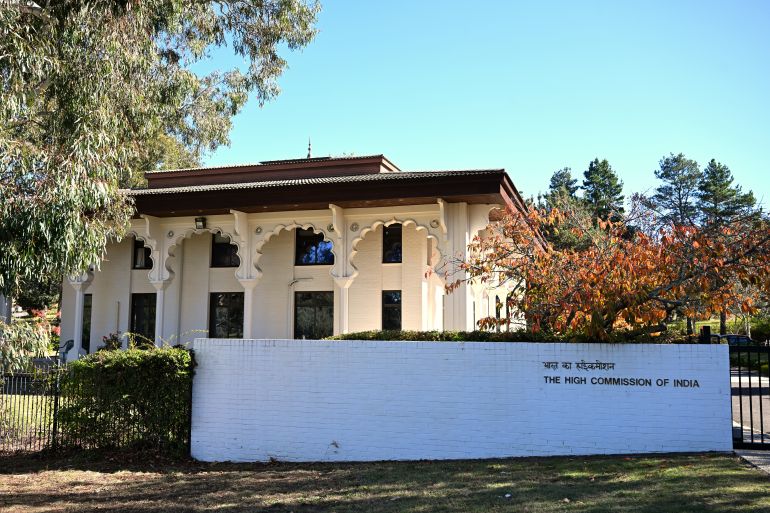Indian spies linked to killings, tracking dissidents abroad: What we know
Is India’s spy agency increasingly targeting dissidents and separatists abroad? Here’s a lowdown.

The Washington Post on Monday reported that an officer in India’s intelligence service was directly involved in a foiled plan to assassinate a citizen of the United States, who is a vocal critic of Indian Prime Minister Narendra Modi.
The report added that the Research and Analysis Wing (RAW) officer was also involved in the assassination of a Sikh activist last June in Canada. The RAW is India’s external intelligence agency.
Keep reading
list of 4 items‘Turbulence’ hits India-US ties after Sikh separatist murder plot
Did India order the murder of a US Sikh separatist? Here’s what we know
India reopens visa services for Canadians, calming diplomatic spat
However, the Ministry of External Affairs of India rejected the report, saying it made “unwarranted and unsubstantiated imputations on a serious matter”.
A day later, the Australian Broadcasting Corporation (ABC) published another report, saying a “nest” of Indian spies was uncovered and expelled from the country for trying to steal defence secrets and monitor expatriate communities in 2020.
So, is India’s spy agency increasingly targeting dissidents abroad? Here’s the latest:
What is the US case about?
In November, US authorities said an Indian government official had directed an unsuccessful plot to murder Gurpatwant Singh Pannun, a Sikh separatist and dual citizen of the US and Canada.
Pannun is the general counsel of Sikhs for Justice, a group that India labelled an “unlawful association” in 2019, citing its involvement in extremist activities. In 2020, India listed Pannun as an “individual terrorist”.

Sikhs for Justice is part of a decades-old movement pushing for an independent Sikh state, called Khalistan, incorporating mostly the Indian state of Punjab. While the movement at its peak saw the killings of thousands of Sikhs and Indian security personnel in the 1980s, it largely lost momentum in India, even though it retains influence among some Sikh diaspora groups in the US, Canada, Australia and the United Kingdom.
In its report, The Washington Post said Vikram Yadav, an Indian RAW official, ordered Pannun’s killing around the same time that Modi visited the White House in a high-profile tour as the two nations build closer ties in the face of shared concerns about China’s growing power.
According to the indictment, on June 20, 2023, two days before Modi spoke at the White House, Yadav emailed Nikhil Gupta, an Indian man hired for the killing, that Pannun’s assassination was a “priority now”. But Gupta turned out to be an informer, working with US federal agencies, and that is how the plot was foiled.
Pannun’s killing did not take place, but the whole episode left a lot of questions for New Delhi to answer.
“India should get to the bottom of this appalling murder-for-hire case – and the United States should make clear that it will not tolerate such crimes within its borders,” said an editorial in The Washington Post on Tuesday.
What happened in Australia?
Public broadcaster ABC on Tuesday reported that Indian spies were caught there by the Australian Security Intelligence Organisation (ASIO) in 2020 while they were trying to “steal secrets about sensitive defence projects and airport security, as well as classified information on Australia’s trade relationships”.
Citing unnamed “national security and government figures”, the report said the Indian “nest of spies” was also accused of surveilling Indians living there and developing close relationships with current and former politicians.
Australian intelligence officials in 2021 had mentioned a “nest of spies” but the country’s government refused to name the country they were working for.
The revelations by the ABC are politically awkward for Canberra, given the growing security relationship between India and Australia. Alongside the US and Japan, they are members of the Quad security partnership.
Australia’s Prime Minister Anthony Albanese, and foreign, defence and treasury ministers all dodged questions about allegations that Indian spies tried to steal defence secrets and monitor diaspora groups. Albanese said he would not comment on intelligence matters.
Like Biden, Albanese had also wooed Modi last year, referring to the Indian leader as the “boss” during a massive rally of Indian Australians.
Are other countries involved as well?
Yes, there is Canada – home to the largest Sikh population after Punjab – where an alleged Indian hit on a critic of the Modi government was actually successful last year.
As the alleged plot in the US to kill Pannun was unfolding, another Sikh separatist, Hardeep Singh Nijjar, was shot dead outside a Sikh temple in British Columbia province on June 18, 2023.

Nijjar, an associate of Pannun, had also been declared a “terrorist” by New Delhi.
In September, Prime Minister Justin Trudeau publicly linked Indian intelligence to Nijjar’s killing on Canadian soil.
Speaking in Parliament, Trudeau said Canadian security agencies were investigating “credible allegations of a potential link” between Indian government agents and the killing.
New Delhi called the allegations “absurd” as the row between the two nations saw the mutual expulsion of diplomats and withholding of visas.
Then there is India’s archenemy Pakistan, where at least eight Sikh and Kashmiri separatists living in exile and labelled “terrorists” by the Modi government have been killed in the past three years. Pakistani officials have blamed India for their killings.